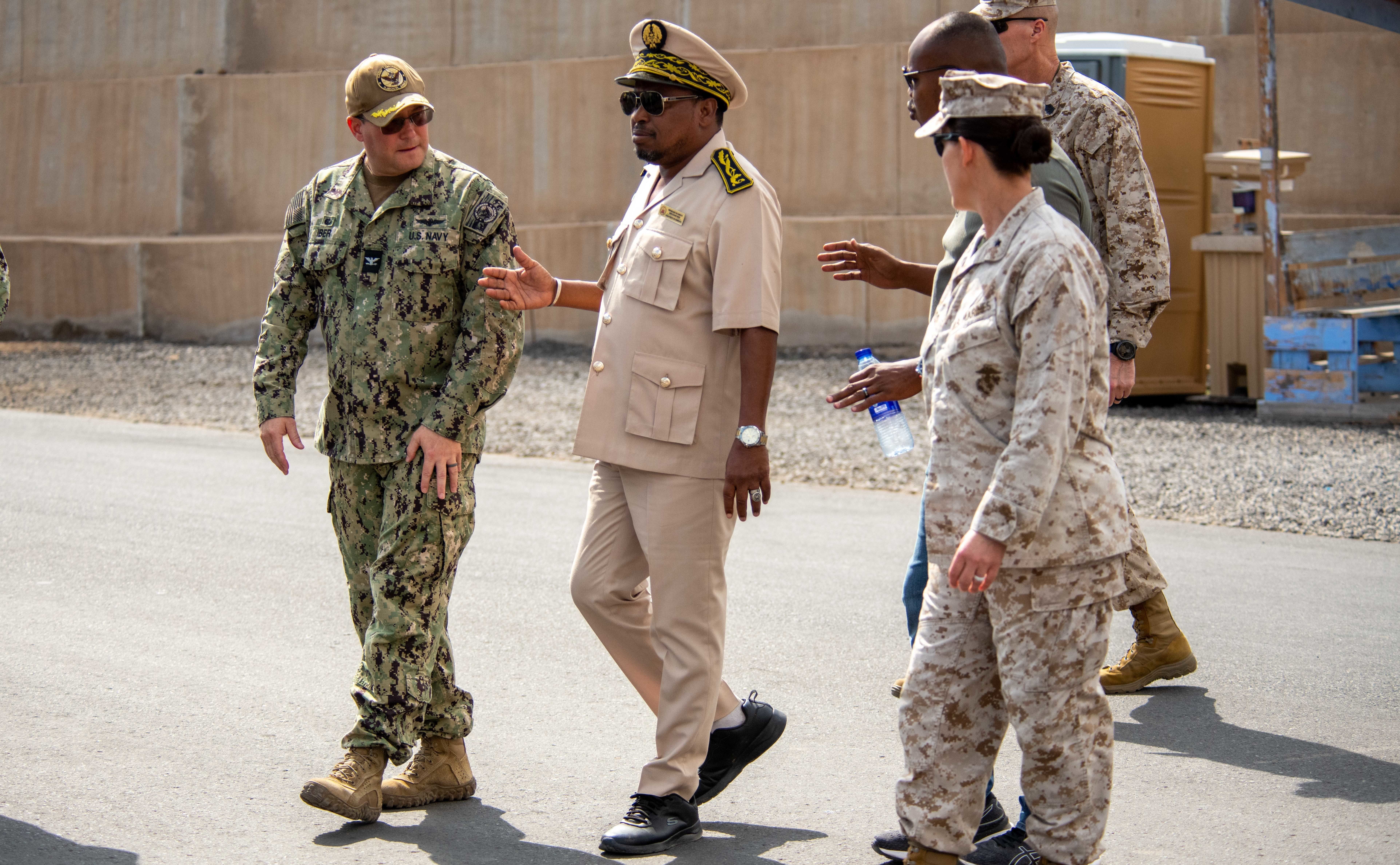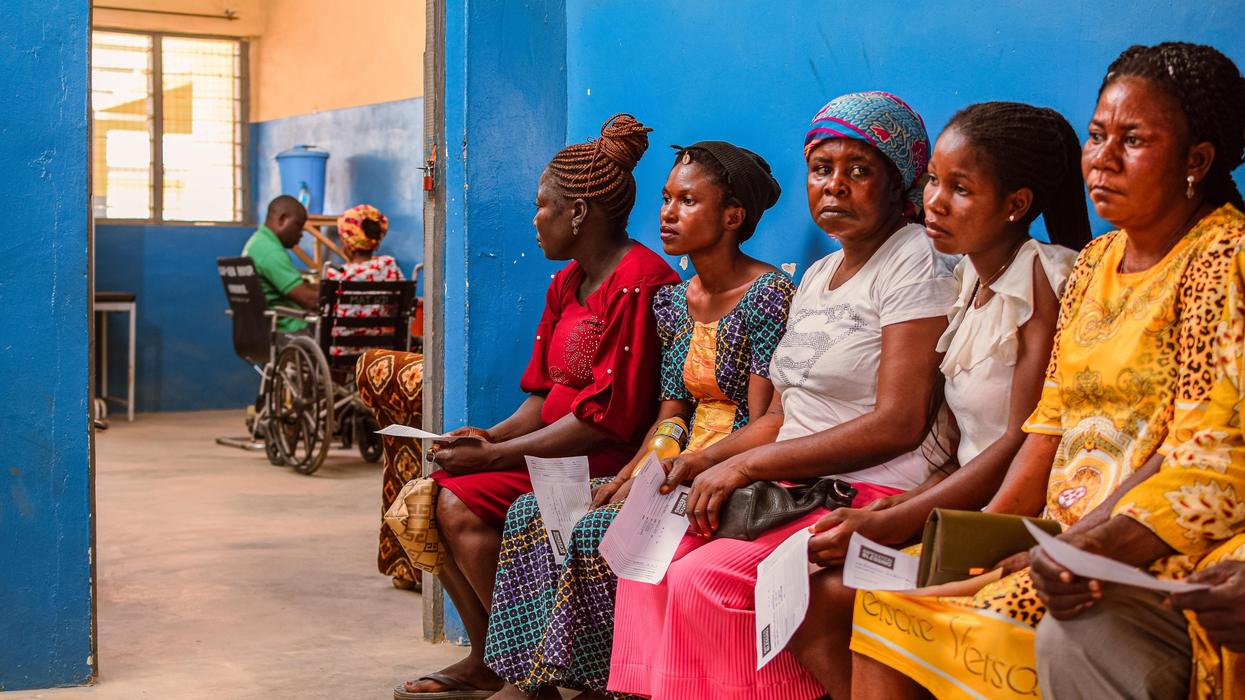Project 2025, the alleged blueprint for President Trump, focuses only one African country: Djibouti. Smaller than West Virginia, Djibouti has a population of one million people and few natural resources. Nevertheless, Project 2025’s authors fret about “the U.S.’s deteriorating position in Djibouti.” Likewise, Secretary of State Marco Rubio has stressed the need to work on “countering Chinese influence in Djibouti.”
Djibouti is critical because of its location. Situated near the Gulf of Aden, around one third of ship traffic passes by on its way to the Suez Canal. To protect these ships, Djibouti hosts military bases from China, France, Italy, Japan, Saudi Arabia and the United States. Until recently, Djibouti-American relations were good. But when Djibouti refused to let the United States attack the Houthis from their territory, the foreign policy establishment lost its temper and blamed Chinese influence.
Djibouti’s refusal is not a pivot to China, but part of its balanced foreign policy: neutrality with states and aggression with non-state actors. By maintaining neutrality, Djibouti can host military bases from multiple countries, some of which are each other’s foes. As long as these bases are used against non-state pariahs like pirates and terrorists like al-Qaida, there is no issue. But any force against states or quasi-state actors like the Houthis is strictly prohibited.
Rather than create unnecessary tensions with China, the United States should focus on its shared interest of protecting maritime traffic. Doing so will enhance security and diffuse tensions between these great powers.
Why Djibouti matters
As the Somali civil war dragged on, chaos reigned and poverty increased. To secure their livelihood, many Somalis resorted to piracy starting in 2000. The capture of American ships and the September 11 attacks led the United States to step up military operations in the Horn of Africa.
In 2002 the United States purchased Camp Lemonnier from Djibouti’s former colonizer France, establishing America’s first and only permanent military base in Africa. They were soon joined by others: Germany established a military presence at the French base in 2008, Japan established its only foreign military base in 2009 and Italy opened its first foreign military base in 2013. There were no issues with any of these military bases, until China opened its first foreign military base in 2017.
China in Djibouti
Just like every other country in Djibouti, China’s main interest is to protect shipping. In fact, before opening its base, the United States lobbied China to provide more assistance in the region. Djibouti is also important for China’s Belt and Road Initiative as a key maritime stop and a new railway line to Ethiopia’s capital Addis Ababa that connects the countries. China is the largest investor in Djibouti, with a total of $14.4 billion in infrastructure being built, a huge sum for an economy that is only worth $4.67 billion.
But for the American foreign policy establishment, China is not just a rival, but an existential threat. “If the Chinese took over that port [in Djibouti], then the consequences could be significant,” said Marine General Thomas Waldhauser in 2018. China’s military base will become a “platform to project power across the continent and its waters,” General Stephen Townsend told the House Armed Services Committee in 2021. Both generals said China would build more military bases in Africa, a prediction that has not yet come to fruition.
With the outbreak of Israel’s onslaught of Gaza, Yemen’s Houthis began a blockade against ships heading to or affiliated with Israel. After Djibouti denied the U.S. request the use force against the Houthis (Djibouti permitted U.S. strikes on al-Qaida in Yemen), the U.S. foreign policy establishment believed China was responsible. “China [is] interfering with U.S. operations at its base in Djibouti,” said Michael Rubin, Senior Fellow at the American Enterprise Institute. Guleb Ahmed of the Middle East Institute insisted that it is because of China that “the Djibouti government has refused to condemn the Houthi attacks on maritime traffic.”
Djibouti’s neutrality
While much has changed in the Horn of Africa, Djibouti has consistently remained neutral. This lets it attract foreign military bases from countries that have adversarial relationships with one another. Ironically, this neutrality permits states to use military force against non-state pariahs like pirates and al-Qaida.
For the United States, the Houthis are terrorists and should be treated the same as al-Qaida. But the Houthis in many ways operate as a state. They control most of Yemen’s populated areas, including its capital, host diplomatic missions and have economic relations with dozens of states. Rather than oppose the Houthis, Djibouti drew a line, prohibiting the United States from carrying out operations from its territory.
But according to the U.S. foreign policy establishment, inaction means Djibouti is pro-Houthi. They point out that Djibouti helped resupply Iranian vessels that assist the Houthis. Yet, the same thing was also done for American vessels that attack the Houthis, as long as these attacks are done outside Djibouti’s territory. No pro-Houthi government would allow such a policy.
A dangerous game
Rather than accept Djibouti’s position, foreign policy experts have sought to escalate tensions, blaming Djibouti for being pro-Houthi and pro-China. Hoping to find a more reliable partner, many propose that the United States recognize and work with Somaliland instead. Somaliland is an unrecognized state that asserted its independence from Somalia in 1991. Close to Yemen and next Somalia, it seems Somaliland offers everything Djibouti has with no strings attached. Project 2025 recommends “the recognition of Somaliland statehood as a hedge against the U.S.’s deteriorating position in Djibouti.”
But recognizing Somaliland would not provide the security America hopes for. The Horn of Africa has a delicate balance of power, with tensions between Ethiopia and Somalia only recently resolved. American recognition of Somaliland would threaten this delicate peace. In addition, while Somaliland is far more stable than Somalia, clan warfare has been ongoing in its Eastern region for the last two years. Finally, relations in the region are often fluid. While China supports Somali unity, this might change if Somaliland was recognized by more countries. With China as the largest investor in Africa, Somaliland might want to work with China. In the end, all America could be left with is a more unstable Horn of Africa.
Cooperate and de-escalate
Djibouti represents a rare opportunity for the United States. It is the only country that hosts both American and Chinese military bases mere kilometers apart. While the two countries are largely adversaries, their primary purpose in Djibouti is the same: securing maritime traffic.
Recall, it was the United States that first asked for Chinese assistance to combat piracy in the Horn of Africa. When China opened a base, it was considered a move too far, with worries it would lead to more bases in Africa, which has not happened to date. Meanwhile the United States has around 40 bases on the continent.
Rather than create tensions, the United States should focus on cooperating with China. Doing so will require respecting Djibouti’s neutrality, which prohibits America from attacking the Houthis from its territory. While there is much the United States and China disagree on, ensuring that trade continues to flow uninterrupted is a shared priority of both countries.
















